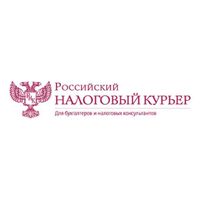Residents of the Vladimir region in Russia now have a simplified process for obtaining comprehensive information regarding their pensions and benefits, thanks to a new initiative by the Social Fund of Russia (SFR). The region has transitioned to a unified digital certificate system that allows users to access all payment information through the State Services portal.
To utilize this service, residents need to fill out an electronic application and specify the desired time period. Once submitted, the system will prepare the certificate within ten working days. A PDF file, complete with an electronic signature from the SFR, will then automatically appear in the user’s personal account. This digital document holds full legal validity, whether sent via email or printed out.
“This innovation will allow residents of the Vladimir region to conveniently and quickly obtain the necessary documents for credit applications, visa processing, subsidies, military enlistment, and income declarations for tax purposes,” stated Anton Kurbakov, the head of the SFR in the Vladimir region. More than 400 individuals have already taken advantage of this new service since its launch.
For those who prefer face-to-face communication or do not possess a verified account, certificates can still be obtained at the client service of the regional SFR branch. This service is also available for residents needing documents covering periods longer than 12 months or requiring a physical copy.
In related news, the region initiated pension payment indexation at the beginning of April 2025, marking another step towards improving financial support for its residents.
Meanwhile, across the border in Ukraine, the Cabinet of Ministers has updated the rules surrounding the registration and receipt of certificates for internally displaced persons (IDPs). This change is particularly relevant for those displaced from temporarily occupied areas, such as Melitopol.
According to Dmitry Lubinets, the Commissioner of the Verkhovna Rada for Human Rights, the new regulations, articulated in CMU Resolution No. 376 dated April 4, 2025, allow IDPs to report changes in their circumstances online through the Diia portal. This is a significant step forward, as it simplifies a range of procedures and clarifies key issues regarding IDP documentation.
Under the new rules, displaced individuals can update their information remotely without visiting social protection agencies in person. This online renewal option is available if the individual has changed their residence, returned home, moved abroad permanently, or decided to renounce their IDP status.
Additionally, if an IDP temporarily relocates to another community for treatment lasting more than 15 days, they can receive a certificate at their new address. After treatment, they must re-register within 60 days at their actual place of residence.
The updated regulations also extend the right to obtain an IDP certificate to military personnel who are currently serving or have completed their service, with some exceptions for those in urgent service or specific categories of conscripts.
Starting in July 2025, the Ministry of Finance will implement a monthly verification process for IDP data. If it is found that an individual has been abroad for over 90 consecutive days without valid reasons, such as illness or business trips, their IDP certificate may be revoked. However, Lubinets reassured that if a certificate is canceled, the individual can reapply upon returning to Ukraine.
“These changes make the accounting system more transparent and better aligned with the real-life situations of people,” emphasized the ombudsman. For residents of Melitopol who remain classified as IDPs, it is crucial to keep their information current and to update it as needed through the Diia portal or local social protection offices.
As the region faces ongoing challenges, including the need for humanitarian support, local initiatives are also emerging. For instance, residents of Melitopol have been actively involved in community efforts, such as baking traditional Easter cakes for frontline communities in Zaporizhzhia.
These steps by both the Vladimir region and Ukraine reflect a growing recognition of the need for streamlined processes and support systems for individuals facing significant life changes due to economic or geopolitical circumstances. As technology continues to evolve, these digital solutions may prove invaluable in enhancing accessibility and efficiency for those in need.


